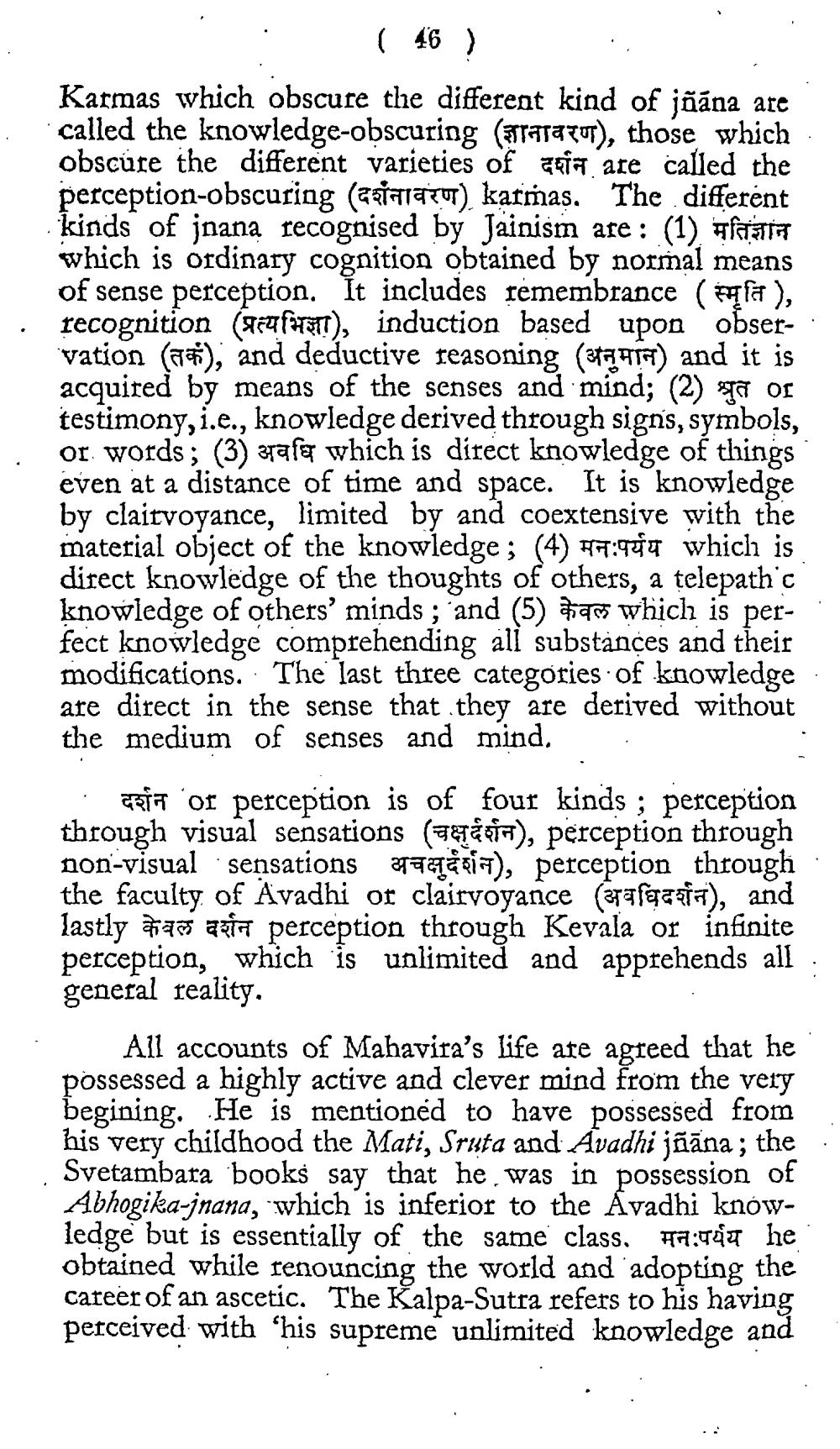________________
Karmas which obscure the different kind of jñána are called the knowledge-obscuring (Tratatut), those which obscure the different varieties of ga are called the perception-obscuring (asiaITzu) karmaş. The different kinds of jnaną recognised by Jainism are: (1) FOTO which is ordinary cognition obtained by normal means of sense perception. It includes remembrance (ma), recognition (954fHTT), induction based upon observation (at), and deductive reasoning (start) and it is acquired by means of the senses and mind; (2) sa of testimony, i.e., knowledge derived through signs, symbols, or words; (3) 3afe which is direct knowledge of things even at a distance of time and space. It is knowledge by clairvoyance, limited by and coextensive with the material object of the knowledge; (4) 7:909 which is direct knowledge of the thoughts of others, a telepath'c knowledge of others' minds; and (5) 90 which is perfect knowledge comprehending all substances and their modifications. The last three categories of knowledge are direct in the sense that they are derived without the medium of senses and mind. .
sta or perception is of four kinds ; perception through visual sensations (Fédia), perception through non-visual sensations aqaia), perception through the faculty of Avadhi or clairvoyance (areasia), and lastly tras asin perception through Kevala or infinite perception, which is unlimited and apprehends all : general reality.
All accounts of Mahavira's life are agreed that he possessed a highly active and clever mind from the very begining. He is mentioned to have possessed from his very childhood the Mati, Sruta and Avadhi jñāna; the Svetambara books say that he was in possession of Abhogika-jnana, which is inferior to the Avadhi knowledge but is essentially of the same class. मनःपर्यय he obtained while renouncing the world and adopting the career of an ascetic. The Kalpa-Sutra refers to his having perceived with his supreme unlimited knowledge and




